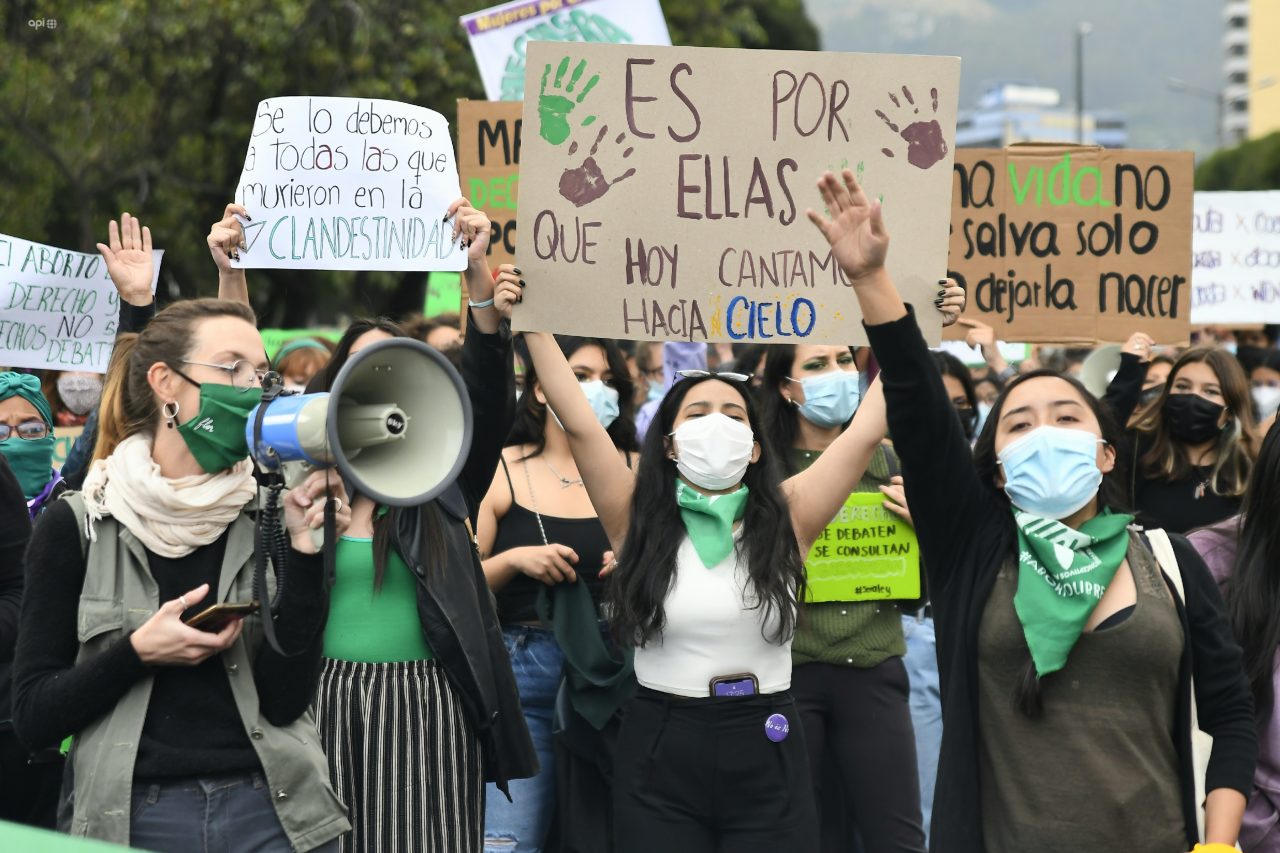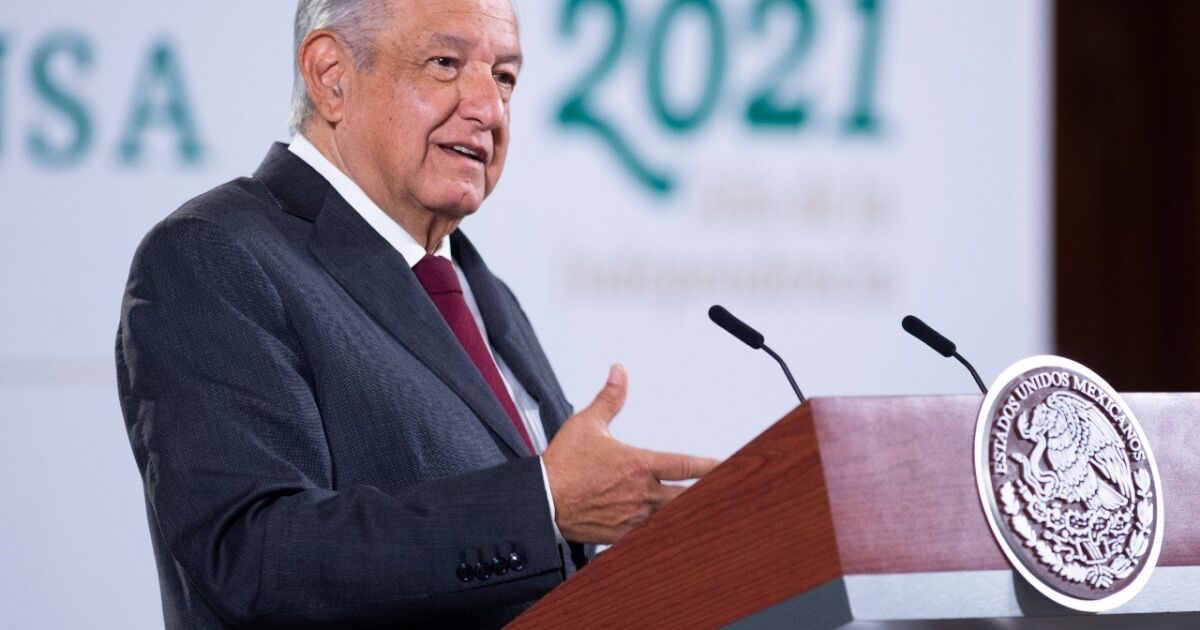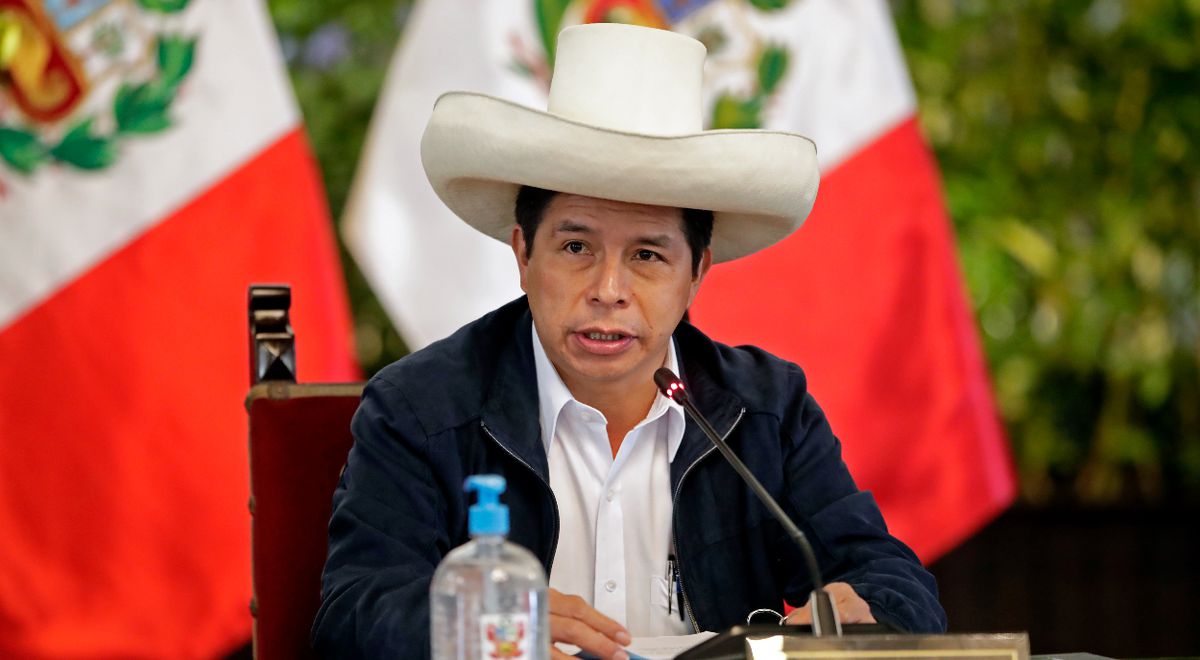The weeks of gestation to access an abortion for rape are not defined. Feminist collectives say there should be no deadline. To this are added two other critical knots.
By this Friday, November 11, 2021, I would be ready to first debate in the National Assembly, the regulation of decriminalization of abortion in cases of rape.
This was confirmed to LA HORA by Assemblyman Alejandro Jaramillo, president of the Justice Commission, who also assured that within the regulations drawn up by the Ombudsman’s Office, they have found three critical points: temporality, conscientious objection and requirements.
“The Permanent Specialized Commission from Justice it has made more than 30 appearances between doctors, specialists, social organizations, geneticists, unions in order to receive all the observations in the framework of the construction of the project and we have had critical points ”, he highlights. But while these ‘dilemmas’ are not resolved, time passes and Assembly members have until December 28 to approve in second debate the regulation. Jaramillo does not rule out that they may request an extension, although he asks not to anticipate the facts.
Temporality
One of the conflicts between the assembly members has been to establish until what month of gestation is possible terminate pregnancy.
The sentence of the Constitutional court It details that it is not its competence to determine this time and highlights that, “in a number of legislations the general rule of the maximum time to interrupt the pregnancy in a consensual way is expressly regulated.”
Some examples can be seen in Italy and Austria, where the pregnancy can be interrupted until the first trimester of gestation; in Chile, City of Mexico, Cuba, France, Germany, Belgium, Bulgaria, Denmark, Finland, Norway, Poland, Russia up to 12 weeks; on Spain and in Argentina up to 14 weeks.
When consulted, Jaramillo It details that they are still looking for a consensus and avoids setting a time. “The report is being built and prepared,” emphasizes the legislator.
For her part, Estefanía Chávez, lawyer Surkuna ‘Center for the Support and Protection of Human Rights’, say what the law should not have gestational terms and that “several international organizations have congratulated that the Ombudsman’s Office has not incorporated deadlines”. The organization states that if the causal violation is already an exceptional circumstance, adding additional requirements or burdens such as time limits to be able to access safe health services “makes access more difficult making it even more exceptional ”.
This criterion has led the Assemblyman Ricardo Vanegas ensure that you are trying to promote a law that guarantees abortion up to the ninth month, which would lead to a “crime against the child formed.”
Chávez rejects what Vanegas said. “This is an abusive and non-technical way of interpreting what happens with abortion. in Ecuador, ”says Chávez, who highlights that the majority are girls and adolescents who, due to fear, ignorance or exclusion from the health system, wait until the second trimester of pregnancy (20 to 25 weeks of gestation)“ that is the technical data that today it exists. Another thing is to ridicule and say that you are going to have an abortion in the eighth or ninth month, ”emphasizes Chávez.
How long would the process take
While the deadlines that the regulations estimate for the process to take place indicate the legal and voluntary interruption of pregnancy in the event of rape, once the request is received from the pregnant person who wishes to access the voluntary interruption of pregnancy due to rape, the health personnel will have 6 days deadline to proceed to perform the intervention. “In case of not having resolution capacity, the doctor or the treating doctor, should refer the case immediately to the nearest medical establishment that has the conditions to carry it out.”
Requirements
The draft regulation details that if the pregnancy is the result of a violation and the pregnant person decides to interrupt it, the health personnel of the establishments of the national health system will make available the request for voluntary interruption of the pregnancy by causal violation.
“In order not to incorporate legal barriers or socioeconomic at victims, the request will have no cost and will be provided by the health personnel of the establishments of the national health system ”, the document states.
In the event that the pregnant person who wishes to terminate her pregnancy is under 12 years of age, no request will be required. Instead and to ensure that the voluntary interruption of the pregnancy is carried out within the time provided for in this law, the health personnel will ensure its completion, taking into account that the beginning of the term to carry it out will run from the first day the girl visited the medical establishment.
The requirements section also holds the Assembly’s justice commission under debate. Vanegas proposes that there be a complaint, an affidavit before Prosecutor’s office and that the identity of the aggressor be detailed to access the process.
Chávez says that an abortion is an obstetric emergency “when you have an emergency of another type, no one asks you for a complaint first (…) there are countries like Brazil that operate without the requirement of a complaint,” he describes.
Within the law, it has not been determined who makes the decision in the case of minors, who are kept in the custody of their parents.
Conscientious objection
The last ‘critical knot’ determined by Jaramillo, within the regulation of access to abortion for rape is conscientious objection: the power of a health professional to refuse – in this case – to perform an abortion either by personal criteria, religious beliefs or other aspects.
The bill details that “conscientious objections for not providing the service, ignorance of the right to abort in cases of rape and more situations that could occur are obstacles to the exercise of the right, they could lead to liability of both the entity and the people who they impede the exercise of the right ”. This is what in the Commission it is debated whether or not it should be punished.
Chávez emphasizes that conscientious objection to be valid cannot be raised in circumstances where rights are truncated, in this case of a woman. “For example, if he is a doctor in Putumayo and he is the only one who can carry out the emergency, he cannot precede conscientious objection,” he details.
Rape Victims Can Abort Without Regulations
The National Assembly She has until December 28 for the regulation of the voluntary interruption of pregnancy, in cases of rape, to be approved. This, however, does not mean that access to abortion continues to be prohibited, as it was the Constitutional court (CC) which decriminalized this cause, on April 28, 2021, and its judgment It is immediate compliance.
To access an abortion it is necessary to do an application.
12 niñas y mujeres víctimas de violación han accedido al aborto, del 29 de abril al 29 de julio de 2021.








